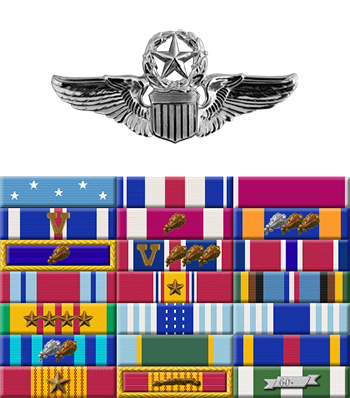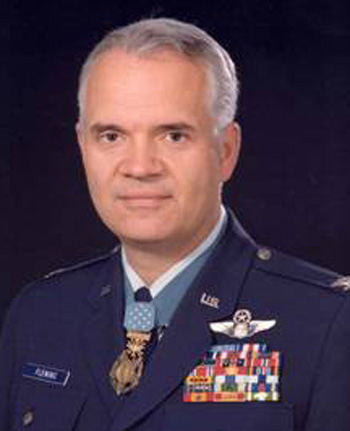
|
James P. Fleming |
 |
|||
| Rank, Service | ||||
Colonel O-6, U.S. Air Force |
||||
| Veteran of: | ||||
|
||||
| Tribute: | ||||
James Fleming was born on March 12, 1943, in Sedalia, Missouri. He was commissioned a 2nd Lt through the Air Force ROTC program at Washington State University on May 9, 1966, and went on active duty beginning on June 12, 1966. Lt Fleming next attended the T-37 phase of Undergraduate Pilot Training at Laredo AFB, Texas, from June to December 1966, followed by Undergraduate Helicopter Training at Sheppard AFB, Texas, from December 1966 to May 1967. His first assignment was as a pilot with the 862nd Combat Support Group and the 450th Bomb Wing at Minot AFB, North Dakota, from June 1967 to May 1968, followed by UH-1F Special Air Warfare training from May to June 1968. Lt Fleming served as a UH-1F pilot with the 20th Helicopter Squadron (redesignated the 20th Special Operations Squadron in August 1968) at Nha Trang AB, South Vietnam, from July 1968 to May 1969, and he was later awarded the Medal of Honor for a mission he flew on November 26, 1968. He then attended fixed-wing Undergraduate Pilot Training at Randolph AFB, Texas, from May 1969 to March 1970, and then C-141 Starlifter training from March to June 1970. Capt Fleming served as a C-141 pilot with the 8th Military Airlift Squadron at McChord AFB, Washington, from June 1970 to August 1971, and then served as an instructor at the U.S. Air Force Academy in Colorado Springs, Colorado. Col Fleming later served as Vice Commander of Officer Training School, Director of Operations at Squadron Officer School, and as Special Assistant to the Commander of the Air Force ROTC detachment at Texas Christian University before retiring from the Air Force on July 1, 1996. |
||||
|
||||

